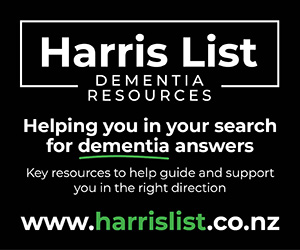Our skeleton isn’t something we tend to think about and most of us take it for granted. However, if you want to live an active, independent life well into old age, a healthy skeleton matters.
Most people hear the word ‘fracture (broken bone)’ and think ‘nuisance’. Some initial pain, an awkward few weeks in plaster, and having to shower with a plastic bag.
Not many people consider that it could be an indicator of something more serious.
Osteoporosis New Zealand, Accident Compensation Corporation (ACC) and other partners in the Live Stronger for Longer Program are hard at work on a national quality improvement programme to reduce the number of hip fractures and improve patient outcomes in New Zealand.
This includes the implementation of world-class Fracture Liaison Services (FLS) throughout NZ. The FLS multidisciplinary model of care to ensure that the ~22300 Kiwis over 50 who present to the health system with a fragility fracture undergo comprehensive risk assessment and receive evidence-based interventions where needed.
Now it is your turn to help by being proactive in the management of your own bone health
If you’ve broken a bone following a simple trip or fall since you turned 50, you’re twice as likely to break another bone in the future. Osteoporosis New Zealand estimates that 200,000 Kiwis over 50 have a history of fragility fracture.
Fractures caused by poor bone health can be life-threatening and a major cause of pain and long-term disability. You only need to ask yourself if you have known someone who has broken their hip. If so, you know just how devastating poor bone health can be.
The good news is that poor bone health can be diagnosed, prevented and treated. Bone Health New Zealand encourages all older New Zealanders to ‘Know their Bones’ – visit www.bones.org.nz, take the Know your Bones™ online self-assessment tool.
This is particularly important if you have sustained a fracture as a result of a minor fall or injury after 50 years. You should ask your doctor whether poor bone health might have caused that fracture.
There are also a number of medicines which play a critical role in managing other diseases but can have a negative effect on bone health.
Common examples include corticosteroids such as prednisone or dexamethasone used to treat diseases of immunity or inflammation, and some treatments for breast or prostate cancer.
Further, people living with certain other diseases should also think about their bone health as these can be associated with bone loss and fracture risk e.g., chronic obstructive pulmonary disease (COPD), coeliac and Crohn’s disease, and rheumatoid arthritis.
Don’t let poor bone health reduce your quality of life, visit www.bones.org.nz, take the test today Know your Bones™ online fracture self-assessment tool and discuss your personalised fracture risk report with your healthcare professional.




